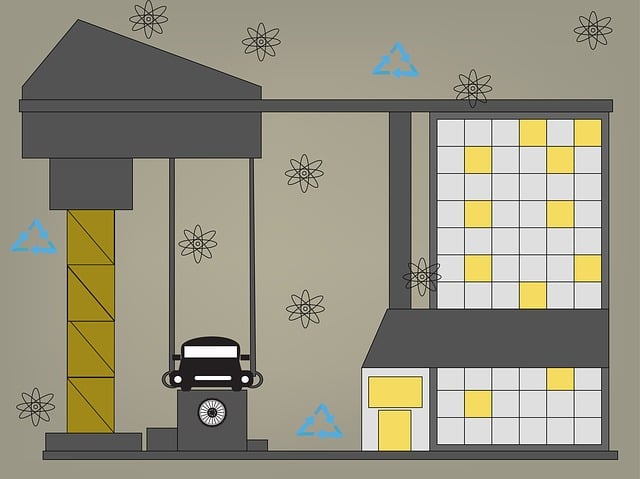Outpatient facilities require specialized business insurance to cover property damage, business interruption, and patient safety risks. Tailored policies protect against medical malpractice, personal injury, and equipment failure, ensuring continuity of care and financial stability. Exploring flexible property options, like co-working spaces, aligns with modern outpatient care needs while enhancing risk management strategies.
In the dynamic landscape of healthcare, understanding outpatient liability and property coverage is paramount for medical facilities. This comprehensive guide navigates essential aspects of business insurance for outpatient care, delving into key areas such as outpatient liability coverage, property insurance, risk management strategies, and alternative property options. By exploring these topics, healthcare providers can ensure they are equipped to manage risks and maintain seamless operations.
- Understanding Outpatient Liability Coverage
- Property Insurance for Medical Facilities
- Risk Management Strategies for Outpatient Care
- Types of Property Damage in Healthcare Settings
- Business Interruption and Outpatient Operations
- Exploring Alternative Property Options for Healthcare Providers
Understanding Outpatient Liability Coverage

Outpatient liability coverage is a critical component of business insurance for facilities providing outpatient care. This type of coverage protects against claims arising from accidents or incidents that occur within the facility, such as medical malpractice, personal injury, or property damage. It’s essential to ensure that your policy includes adequate limits and scopes to cover the specific risks associated with outpatient services, including doctor’s offices, clinics, and ambulatory surgical centers.
Understanding these liability options is crucial for business owners in the healthcare sector. By reviewing the policy carefully, identifying gaps in coverage, and negotiating appropriate terms, facility managers can mitigate potential financial losses and legal liabilities. This proactive approach aligns with providing quality outpatient care while safeguarding against unexpected risks.
Property Insurance for Medical Facilities

Outpatient facilities, providing essential medical services outside traditional hospital settings, require robust property insurance coverage tailored to their unique risks and operations. This type of insurance plays a crucial role in protecting businesses against potential losses related to their physical assets and operations. A comprehensive business insurance policy for outpatient care should include property coverage that safeguards buildings, equipment, and inventory from perils such as fire, vandalism, and natural disasters.
Property insurance for medical facilities goes beyond basic coverage to address specialized risks. It ensures the replacement or repair of critical equipment like medical devices and machinery, protects sensitive patient records and data, and provides liability protection in case of accidental damage or harm caused to patients within the facility. By ensuring adequate property insurance, outpatient care providers demonstrate their commitment to maintaining a safe and secure environment for patients, fostering trust and peace of mind among their clientele.
Risk Management Strategies for Outpatient Care

Risk management is an integral part of running a successful and compliant outpatient care business. With various liabilities and potential property damages to consider, implementing robust strategies is essential. One key approach is obtaining comprehensive business insurance tailored for outpatient facilities. This coverage protects against financial losses from accidents, injuries, or property damage on your premises.
Additionally, establishing strict safety protocols and regular staff training can significantly reduce risks. Regular maintenance of equipment and facilities, proper waste management, and ensuring patient confidentiality through robust data security measures are other effective risk mitigation techniques. These strategies not only safeguard your business but also contribute to a positive patient experience, fostering trust in your outpatient care services.
Types of Property Damage in Healthcare Settings

In healthcare settings, property damage can take various forms, each requiring specific coverage under business insurance policies for outpatient care facilities. One common type is structural damage, encompassing repairs to buildings and their components like roofs, walls, and foundations. These are essential to maintain a safe environment for patients and staff. Another significant category is content damage, which involves the loss or deterioration of belongings within the facility, such as medical equipment, furniture, and inventory. This can be caused by events like water leaks, fires, or theft.
Additionally, healthcare businesses should consider coverage for business interruption to mitigate losses during periods when operations are suspended due to property damage. This includes lost revenue and additional expenses incurred while the facility is being repaired or restored. Adequate business insurance for outpatient care facilities should be tailored to address these diverse risks, ensuring that properties, contents, and income streams are all protected.
Business Interruption and Outpatient Operations

Business interruption and outpatient operations are two critical aspects that require careful consideration for any healthcare facility offering outpatient care. Business interruption insurance is a vital component of risk management strategy, designed to protect against financial losses incurred during unforeseen events that disrupt normal business operations. This could include events like natural disasters, equipment failure, or even public health crises such as the COVID-19 pandemic. By ensuring adequate coverage, outpatient facilities can maintain stability and continue providing essential care without significant financial strain.
Outpatient operations, on the other hand, encompass a range of services delivered outside traditional hospital settings, from routine check-ups to specialized treatments. Effective management of these operations requires comprehensive planning for staff allocation, patient flow, and resource utilization. Business insurance tailored for outpatient care should address specific risks unique to this environment, such as liability associated with medical errors, patient safety incidents, or equipment malfunctions. Such insurance helps healthcare providers safeguard their investments, maintain operational continuity, and prioritize patient well-being.
Exploring Alternative Property Options for Healthcare Providers

In the competitive landscape of healthcare services, exploring alternative property options can be a strategic move for providers looking to enhance their business insurance and outpatient care offerings. Traditional office spaces are no longer the sole option; innovative models like co-working facilities and virtual offices can offer significant advantages. These modern alternatives provide flexibility, reduced overhead costs, and often include amenities that cater to the specific needs of healthcare professionals. For instance, co-working spaces in medical hubs allow doctors and therapists to maintain a professional environment without the burden of long-term lease agreements.
Furthermore, as business insurance requirements vary across specialties, choosing a property that aligns with these needs is crucial. Outpatient care facilities, for example, may require specialized coverage for medical equipment, liability for patient care, and protection against potential environmental hazards. By considering these factors when selecting a property, healthcare providers can ensure they’re adequately insured, maintain compliance, and ultimately, deliver high-quality outpatient care in an environment that supports their practice’s growth and success.
